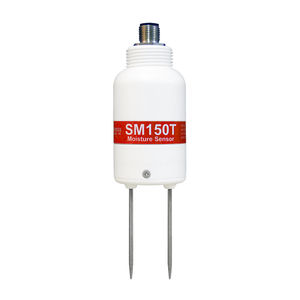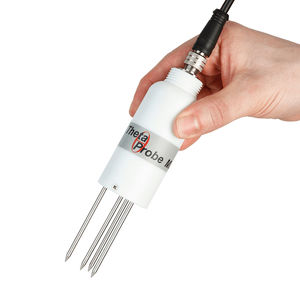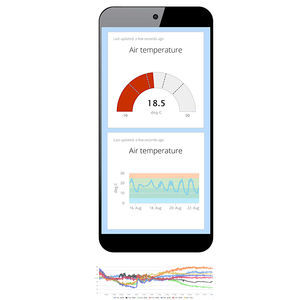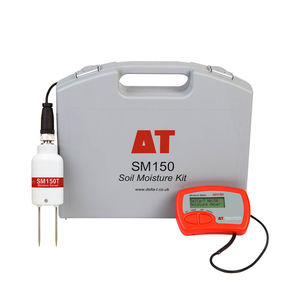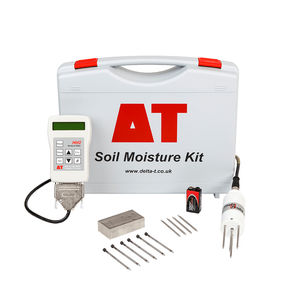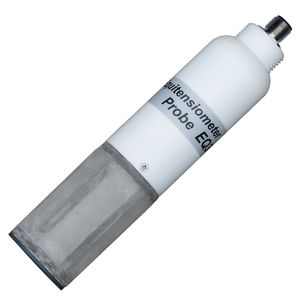
- Farm Management
- Measuring instrument
- Soil moisture sensor
- Delta-T Devices
Soil moisture sensor WET-2 temperature
Add to favorites
Compare this product
Characteristics
- Application
- for soil
- Additional measurement
- temperature
Description
• Moisture and nutrient status in the root zone
• Rapid monitoring of growing conditions
• Calibrations for many soils and substrates
The WET Sensor has crucial applications in precision horticulture and soil science research and is usable in both soils and growing substrates. It is exceptional in its ability to measure pore water conductivity (ECp), the EC of the water that is available to the plant.
Rapid checks on growing conditions
The sensor is easily inserted into substrates, composts and most soils. It takes less than 5 seconds to measure water content (%), pore water conductivity (ECp) and temperature – all being important indictors of root zone health.
Pore water conductivity
The WET Sensor is able to calculate pore water conductivity (ECp) which is the EC of the water available to plant roots. The ECp calculation is derived from an approximate relationship between dielectric properties. This applies particularly well to WET Sensor readings, which are taken at the same frequency within the same defined region of soil/substrate. The approximation is valid in most soils and is particularly accurate in mineral wool and other artificial substrates media.
Fertigation and hydroponics
Where plants are grown in artificial substrates using hydroponic or fertigation systems, nutrients are routinely supplied in irrigation water. Nutrient levels are controlled by monitoring the water content and conductivity (EC) and adjusting the injection of liquid fertiliser into the irrigation water. The Delta-T Devices WET Sensor excels in monitoring this crucial information.
Catalogs
Soil Moisture Measurement
24 Pages
WET150 Sensor
4 Pages
Related Searches
- Portable analyzer meter
- Weather station
- Temperature weather station
- Relative humidity weather station
- Weather station with data logger
- Soil sampler
- Wind speed weather station
- Temperature datalogger
- Temperature thermo hygrometer
- Soil moisture sensor
- Portable soil sampler
- Soil analyzer meter
- Digital thermo hygrometer
- Soil moisture weather station
- Rain gauge
- Water analyzer meter
- Automatic weather station
- Humidity datalogger
- Electric weather station
- Connected temperature probe
*Prices are pre-tax. They exclude delivery charges and customs duties and do not include additional charges for installation or activation options. Prices are indicative only and may vary by country, with changes to the cost of raw materials and exchange rates.





